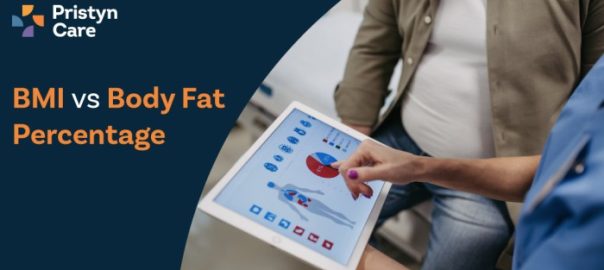![]() Views: 63
Views: 63
Life After Weight Loss Surgery
One such solution that has seen a surge in popularity is bariatric surgery.
Dedicated Support at Every Step!
Our Doctors are available 24 hours a day, 7 days a week to help you!
Call Us9513-316-643This blog aims to provide an insight into what life looks like after such weight loss surgeries. It is crucial for anyone considering these procedures to understand not only the physical changes but also the emotional and lifestyle adjustments that come along post-surgery. Our objective is to equip you with comprehensive knowledge, so you can make informed decisions about your health and well-being following weight loss surgery.
Table of Contents
The Nature of Weight Loss Surgeries
Bariatric surgery is a broad term covering various procedures aimed at helping individuals achieve significant weight loss. In India, the most common types include:
- Laparoscopic Sleeve Gastrectomy (LSG): This procedure involves creating a sleeve-like structure by removing a large part of the stomach. The popularity of LSG has grown immensely, and it now accounts for a majority of all bariatric surgeries performed in India.
- Roux-en-Y Gastric Bypass (RYGB): RYGB involves creating a small pouch from the stomach and connecting it directly to the small intestine, bypassing a part of the digestive tract. This limits food intake and nutrient absorption.
- One-Anastomosis Gastric Bypass (OAGB): This newer procedure is gaining ground because of its effectiveness and simplicity. OAGB involves making a single connection between the stomach and small intestine.
The rise in these surgical procedures reflects the increasing prevalence of obesity and its associated health risks in India. The growing number of these surgeries in India underscores the pressing need for greater awareness and education about obesity and its management through surgical options. As we delve deeper into this topic, we will explore the changes one can expect post-surgery and how best to navigate them.
No Cost EMI, Hassle-free Insurance Approval
Immediate Post-Surgery Changes
The immediate changes after your weight-loss surgery can be quite significant, impacting your daily life in various ways.
Physical Changes:
In the days immediately following your surgery, you may notice a rapid weight loss due to the restrictive nature of the procedure. This change could be both exciting and overwhelming. You might experience physical discomfort, including pain at the incision sites, fatigue, and changes in mobility. Swelling and bruising are also common post-surgery symptoms. Some of you could encounter temporary digestive disturbances such as nausea or constipation as your body adjusts to a new way of eating.
Dietary Changes:
Post-weight loss surgery, dietary modifications become crucial. Initially, you would need to stick to a clear liquid diet, gradually progressing to pureed food before moving onto solid foods. This dietary transition might be challenging because you will need to learn to eat smaller portions and focus on nutrient-dense foods to avoid complications. Hydration becomes essential during this phase. Many might find this adjustment in eating habits liberating yet restrictive.
Potential Side Effects:
Occasionally, side effects such as dumping syndrome—a condition where food moves too quickly through the digestive system—may occur. This syndrome may lead to symptoms like sweating, dizziness, and diarrhoea. You might also notice changes in your appetite and cravings, which can affect your relationship with food. These immediate changes require careful management and support from your doctor for a smooth recovery and long-term success.
Psychological Impact of Surgery
Weight-loss surgery can have a profound psychological impact. As you begin to notice physical changes, there may be a shift in how you perceive your body image. This shift can evoke feelings of empowerment or insecurity depending on individual experiences. While some people might embrace their new appearance, others might struggle with body dysmorphia, feeling disconnected from their transformed selves.
Emotional adjustments post-surgery are quite common too. Challenges related to identity could surface, as weight loss can alter social dynamics and personal relationships. Feelings of anxiety or depression may occur, particularly if your expectations for weight loss and lifestyle changes are not met. During this transition, support from mental health professionals, support groups, and loved ones becomes invaluable. It helps navigate these emotional complexities and fosters a positive self-image.
Long-Term Lifestyle and Dietary Modifications
After undergoing weight loss surgery, successful maintenance of your new weight largely hinges on long-term lifestyle and dietary modifications. These changes are key to not only maintaining weight loss but also promoting overall health.
Dietary Alterations: After your surgery, you must adopt a balanced diet focused on nutrient-rich foods and limiting processed high-calorie options. This typically involves:
- Portion Control: Try to have smaller, more frequent meals to avoid overeating.
- High-Protein Foods: Prioritise lean proteins, such as chicken, fish, legumes, and low-fat dairy to maintain muscle mass and feel satisfied longer.
- Hydration: Remain well-hydrated by drinking plenty of water and avoiding sugary drinks.
- Mindful Eating: Learn to eat slowly, paying full attention to hunger and satiety cues to prevent emotional eating.
Increased Physical Activity: To maintain a healthy weight, regular physical activity becomes essential. Aim for at least 150 minutes of moderate-intensity exercise each week:
- Cardiovascular Activities: Activities like walking, swimming, or cycling can help improve heart health.
- Strength Training: Participate in resistance exercises to build and maintain muscle mass.
- Flexibility and Balance: Involve activities such as yoga or Pilates to enhance overall body fitness and reduce the risk of injury.
Regular Health Check-ups: Maintaining routine appointments with your doctor is important for monitoring your health status, addressing any complications, and ensuring nutritional needs are met.
- Nutritional Counselling: This can help to adjust dietary plans as per individual needs.
- Routine Blood Work: Regular blood checks can monitor deficiencies and overall health markers.
Tips for Successful Weight Management Post-Surgery
Maintaining weight loss success post-surgery requires dedication and a tactical approach. Here are some valuable tips:
- Establish Healthy Eating Habits: Emphasise on whole foods, including fruits, vegetables, whole grains, and lean proteins. Avoid foods rich in sugar and fat that can cause weight gain.
- Create a Consistent Exercise Routine: Find activities that you enjoy and make exercise a regular habit. Mix cardio, strength training, and flexibility exercises for balanced fitness.
- Practice Stress Management Techniques: Stress can lead to emotional eating. Incorporate mindfulness practices like meditation or deep breathing to manage stress effectively.
- Stay Accountable: Consider joining support groups or working with a dietitian to stay motivated and accountable for your health goals.
- Monitor Your Progress: Keep a record of your weight, dietary habits, and physical activity to identify patterns and make necessary adjustments.
By diligently implementing these strategies, individuals can significantly increase their chances of long-term success and enjoy a healthier lifestyle after weight loss surgery. These changes are not just strategies but a new way of life to be embraced for better health and well-being.
Impact on Co-Morbidities and Quality of Life
Weight loss surgery, especially bariatric procedures, can significantly influence co-morbidities related to obesity such as type 2 diabetes, hypertension, and sleep apnea. Studies have shown that these types of surgeries can lead to substantial weight loss. This considerable reduction in weight is linked with impressive remission rates for diabetes, hypertension, and sleep apnea within the same timeframe. The improvements are due to hormonal changes that occur after surgery, which can enhance insulin sensitivity and reduce systemic inflammation. This contributes to lowering blood pressure and improving metabolic function. Interestingly, some patients experience a decrease in blood pressure as early as one week post-operation, even before significant weight loss has taken place. This suggests that hormonal factors play a crucial role in the initial health benefits observed after surgery.
Beyond physical health, weight loss surgery also promotes improved quality of life. Patients frequently report increased mobility, reduced pain from joint problems, and improved mental health. These beneficial changes encourage a more active lifestyle, further boosting overall well-being and life satisfaction.
To wrap up, while weight loss surgery can lead to significant improvements in co-morbidities associated with obesity and enhance quality of life, it is important to remember that this is not a quick fix. It requires a lifelong commitment to maintaining healthy lifestyle choices. Sustaining the positive outcomes achieved through surgery is crucial, which underscores the importance of ongoing support and lifestyle modifications.
FAQs
- How will my eating habits change after weight loss surgery?
After weight loss surgery, you will notice a significant change in your eating habits. The operation reduces the size of your stomach, meaning you will feel fuller, faster. You will need to eat smaller, nutrient-rich meals and chew your food thoroughly. It is important to avoid high-sugar and high-fat foods and stay hydrated by drinking plenty of water throughout the day.
- Can weight loss surgery cure my diabetes?
Weight loss surgery can significantly improve or even resolve type 2 diabetes in many patients. However, remember that it is not a guaranteed cure. Post-surgery, maintaining regular physical activity, and a healthy diet will play a significant role in managing blood sugar levels.
- Will I need to exercise after weight loss surgery?
Yes, regular exercise is a critical component of your new lifestyle post-surgery. It not only aids in faster weight loss but also helps in managing other health conditions, building muscle tone and boosting your overall mood.
- What kind of dietary supplements will I need after weight loss surgery?
Post-surgery, your doctor may recommend certain dietary supplements to ensure you are getting all the necessary nutrients. These could include multivitamins, protein shakes, calcium, iron, vitamin B12 and D.
- How often will I need to see my doctor after weight loss surgery?
Your follow-up appointments will be quite frequent initially - maybe even once a week. As you make progress and demonstrate that you are adjusting well to your new lifestyle, these visits will become less frequent.
- Can weight loss surgery extend my life expectancy?
Studies suggest that weight loss surgery can indeed extend life expectancy by reducing the risk of life-threatening conditions such as heart disease, stroke and certain cancers.
- Will I need plastic surgery after weight loss surgery?
Some patients do choose to have plastic surgery to remove excess skin after significant weight loss. However, this decision is personal and should be discussed with your doctor.
- How can I manage my mental health after weight loss surgery?
Mental health is an important aspect of your overall well-being. Consider seeking help from a mental health professional who specialises in body image and self-esteem issues, particularly those associated with significant weight loss.
- Is it normal to experience hair loss after weight loss surgery?
Temporary hair loss can occur a few months after the surgery due to stress and changes in your diet. This is usually temporary and improves with proper nutrition and time.
- How soon can I return to work after weight loss surgery?
The recovery period varies for each individual but on average, you may be able to return to work after two to four weeks, depending on the nature of your job. Your doctor will provide more personalised advice.









